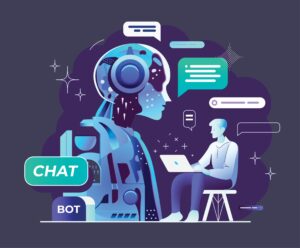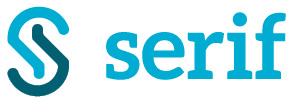How much will the rise of AI impact human resources?
In the evolving landscape of modern business, the rise of artificial intelligence (AI) is reshaping various industries, and human resources (HR) is no exception. As organisations increasingly harness the power of AI, the role of HR is undergoing a profound transformation in recruitment, training, and more.
In this blog post, we will explore how AI is impacting human resources and what this means for the future of HR professionals and the workforce.

Recruitment and talent acquisition
One of the most noticeable impacts of AI on HR is in the realm of recruitment and talent acquisition. AI-powered tools and algorithms have made it possible to streamline the hiring process by automating tasks such as resume screening and initial candidate assessments. This not only saves time but also helps reduce bias in the selection process, leading to more diverse and inclusive hiring practices. If you are using these, or plan to do so don’t forget to update your privacy statements to make candidates aware of this, and allow them the right to object, insist a human does it instead or challenge any result.
AI-driven chatbots are also being used for initial candidate interactions and scheduling interviews, offering a seamless and responsive experience for applicants. Moreover, predictive analytics enable HR professionals to identify potential candidates more effectively and predict employee turnover, allowing for proactive talent management strategies.
Employee onboarding and training
AI plays a significant role in improving the onboarding and training processes. Virtual reality (VR) and augmented reality (AR) technologies powered by AI can create immersive training experiences, helping employees gain hands-on experience without the need for physical resources. Chatbots and AI-driven training modules can provide continuous learning opportunities, ensuring employees remain updated on industry trends and skills.
Furthermore, AI can personalise training content, adapting it to each employee’s learning style and pace, thus enhancing the overall effectiveness of training programs. This level of personalisation helps in upskilling the workforce efficiently.
HR administrative tasks
AI’s impact on HR also extends to administrative tasks. Chatbots and virtual assistants can handle routine HR inquiries, such as leave requests, benefits enrolment, and payroll inquiries. This frees up HR professionals to focus on more strategic tasks, such as talent development, workforce planning, and organisational culture initiatives.
AI also plays a role in automating compliance and reporting, ensuring that organisations adhere to labour laws and regulations, reducing the risk of legal issues. Plus, AI-powered analytics can help HR professionals make data-driven decisions in workforce planning. Predictive analytics can forecast talent needs and identify skill gaps within the organisation, enabling HR to proactively address these issues.
Looking to use AI to meet your needs?
The rise of AI is evolving the field of human resources. From recruitment and talent acquisition to employee engagement and retention, AI is streamlining processes, reducing bias, and providing invaluable insights.
As AI continues to advance, HR professionals will slowly adapt and embrace these technologies to effectively support their organisations. It should never replace the ‘human touch’ though where HR is needing to be empathetic, supportive as these interactions still very much matter. If you’d like help embracing AI, get in touch with us today to learn more about these processes.


